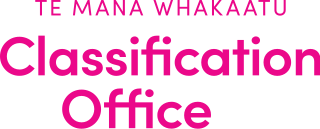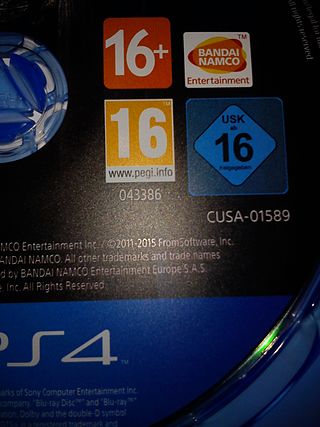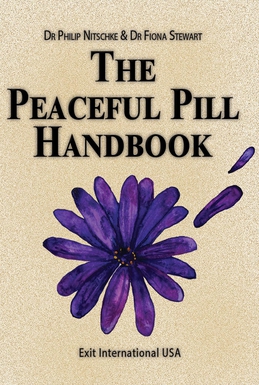A motion picture content rating system classifies films based on their suitability for audiences due to their treatment of issues such as sex, violence, or substance abuse, their use of profanity, or other matters typically deemed unsuitable for children or adolescents. Most countries have some form of rating system that issues determinations variously known as certifications, classifications, certificates, or ratings. Age recommendations, of either an advisory or restrictive capacity, are often applied in lieu of censorship; in some jurisdictions movie theaters may have a legal obligation to enforce restrictive ratings.
Video nasty is a colloquial term popularised by the National Viewers' and Listeners' Association (NVALA) in the United Kingdom to refer to a number of films, typically low-budget horror or exploitation films, distributed on video cassette that were criticised for their violent content by the press, social commentators, and various religious organisations in the early 1980s. These video releases were not brought before the British Board of Film Classification (BBFC) due to a loophole in film classification laws that allowed videos to bypass the review process. The resulting uncensored video releases led to public debate concerning the availability of these films to children due to the unregulated nature of the market.
Although Australia is considered to have, in general, both freedom of speech and a free and independent media, certain subject-matter is subject to various forms of government censorship. These include matters of national security, judicial non-publication or suppression orders, defamation law, the federal Racial Discrimination Act 1975 (Cth), film and literature classification, and advertising restrictions.

The Office of Film and Literature Classification, branded as the Classification Office, is an independent Crown entity established under Films, Videos, and Publications Classification Act 1993 responsible for censorship and classification of publications in New Zealand. A "publication" is defined broadly to be anything that shows an image, representation, sign, statement, or word. This includes films, video games, books, magazines, CDs, T-shirts, street signs, jigsaw puzzles, drink cans, and slogans on campervans. The Chief Censor, Caroline Flora, is the chair of the Office.

Pornography laws by region vary throughout the world. The production and distribution of pornographic films are both activities that are lawful in many, but by no means in all countries so long as the pornography features performers aged above a certain age, usually 18 years. Further restrictions are often placed on such material.
In Ireland, the state retains laws that allow for censorship, including specific laws covering films, advertisements, newspapers and magazines, as well as terrorism and pornography, among others. In the early years of the state, censorship was more widely enforced, particularly in areas that were perceived to be in contradiction of Roman Catholic dogma, including abortion, sexuality and homosexuality. The church had banned many books and theories for centuries, listed in the Index Librorum Prohibitorum.
Censorship in Singapore mainly targets political, racial, religious issues and homosexual content as defined by out-of-bounds markers.
The Society for Promotion of Community Standards Inc. ("SPCS") is a conservative lobby group in New Zealand. A registered charity and incorporated society, the Society has taken a strong pro-censorship stance and clashed many times with the Office of Film and Literature Classification. They have also advocated socially conservative positions on issues such as abortion, euthanasia and same-sex marriage.

Jane Theresa Wrightson is New Zealand's Retirement Commissioner. She was previously New Zealand's eighth Chief Censor, and first woman Chief Censor, from 1991 to 1993, when Films, Videos, and Publications Act became law.

A video game content rating system is a system used for the classification of video games based on suitability for target audiences. Most of these systems are associated with and/or sponsored by a government, and are sometimes part of the local motion picture rating system. The utility of such ratings has been called into question by studies that publish findings such as 90% of teenagers claim that their parents "never" check the ratings before allowing them to rent or buy video games, and as such, calls have been made to "fix" the existing rating systems. Video game content rating systems can be used as the basis for laws that cover the sales of video games to minors, such as in Australia. Rating checking and approval is part of the game localization when they are being prepared for their distribution in other countries or locales. These rating systems have also been used to voluntarily restrict sales of certain video games by stores, such as the German retailer Galeria Kaufhof's removal of all video games rated 18+ by the USK following the Winnenden school shooting.

Family First New Zealand is a conservative Christian lobby group in New Zealand. It was founded in March 2006 by former Radio Rhema talkback radio host and South Auckland social-worker Bob McCoskrie who continues to be its National Director. Its 2006 stated objectives were to "seek to influence public policy affecting the rights and protection of families and promote a culture that values the family". In 2009 Victoria University religious studies professor Paul Morris said Family First was "successfully broadening the Christian agenda in New Zealand politics in a way never seen before". In 2020 Family First was described as "New Zealand's most formidable conservative campaigners". Family First was established by a trust deed under the Charitable Trusts Act 1957 in 2006, was registered as a charity in 2007 and deregistered in 2022.
Censorship in New Zealand has been present since around 1850 and is currently managed by the Classification Office under the Films, Videos, and Publications Classification Act 1993.

The Peaceful Pill Handbook is a book setting out information on assisted suicide and voluntary euthanasia. Written by the Australian doctor Philip Nitschke and lawyer Fiona Stewart, it was originally published in the U.S. in 2006. A German edition of the print book—Die Friedliche Pille—was published in 2011. A French edition—La Pilule Paisible—was published in June 2015. An Italian edition—La pillola della quiete—was published in 2018.

British Board of Film Classification is a non-governmental organisation founded by the British film industry in 1912 and responsible for the national classification and censorship of films exhibited at cinemas and video works released on physical media within the United Kingdom. It has a statutory requirement to classify all video works released on VHS, DVD, Blu-ray, and, to a lesser extent, some video games under the Video Recordings Act 1984. The BBFC was also the designated regulator for the UK age-verification scheme, which was abandoned before being implemented.
John Thompson Productions is a German pornographic film studio based in Berlin, Germany. The studio is best known for its bukkake-themed series German Goo Girls (GGG), but it has other series focusing on gang bangs, urolagnia and urophagia, BDSM, erotic humiliation and rough sex. The company is one of the best known and top selling German and European porn studios. John Thompson and his films have won or been nominated for several pornography awards, but the perceived extreme nature of its content has led to some of its films being banned in several countries.
Internet censorship in New Zealand refers to the Government of New Zealand's system for filtering website traffic to prevent Internet users from accessing certain selected sites and material. While there are many types of objectionable content under New Zealand law, the filter specifically targets content depicting the sexual abuse or exploitation of children and young persons. The Department of Internal Affairs runs the filtering system, dubbed the Digital Child Exploitation Filtering System (DCEFS). It is voluntary for Internet Service Providers (ISPs) to join.
The Australian Classification Board is an Australian government statutory body responsible for the classification and censorship of films, video games and publications for exhibition, sale or hire in Australia. The ACB was established in 1970 and was once part of the Office of Film and Literature Classification (OFLC), which was dissolved in 2006. The Department of Communications and the Arts provided administrative support to the ACB from 2006 until 2020, when it was merged into the 'mega department' of the Department of Infrastructure, Transport, Regional Development and Communications. Decisions made by the ACB may be reviewed by the Australian Classification Review Board. The ACB now operates under the Commonwealth Classification Act 1995. The ACB is made up of a director, a deputy director, and three other board members, appointed by the government for three- or four-year terms, and temporary board members. The ACB is located in Sydney, New South Wales.
The Indecent Publications Tribunal was a government censorship organisation that operated in New Zealand from 1964 until 1993. It was established under the Indecent Publications Act 1963 and consisted of five members, with one a High Court barrister or solicitor, and four other members with two having qualifications in the field of literature or education. John Robson, a senior public servant, was instrumental in having provisions for the Tribunal to be established under the Act.

Into the River is a novel by Ted Dawe, featuring a coming-of-age story set in New Zealand, and intended for a young adult audience. It was awarded the Margaret Mahy Book of the Year prize and also won the top prize in the Young Adult Fiction category at the 2013 New Zealand Post Children's Book Awards. It was briefly banned from sale and supply in New Zealand.








